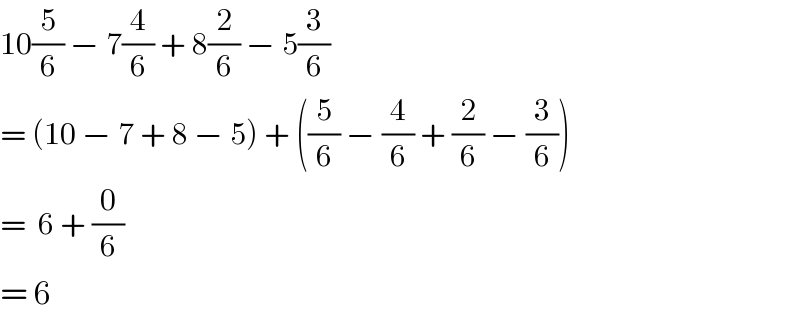Question Number 32099 by jasno91 last updated on 19/Mar/18

Answered by Joel578 last updated on 19/Mar/18

$$\mathrm{10}\frac{\mathrm{5}}{\mathrm{6}}\:−\:\mathrm{7}\frac{\mathrm{4}}{\mathrm{6}}\:+\:\mathrm{8}\frac{\mathrm{2}}{\mathrm{6}}\:−\:\mathrm{5}\frac{\mathrm{3}}{\mathrm{6}} \\ $$$$=\:\left(\mathrm{10}\:−\:\mathrm{7}\:+\:\mathrm{8}\:−\:\mathrm{5}\right)\:+\:\left(\frac{\mathrm{5}}{\mathrm{6}}\:−\:\frac{\mathrm{4}}{\mathrm{6}}\:+\:\frac{\mathrm{2}}{\mathrm{6}}\:−\:\frac{\mathrm{3}}{\mathrm{6}}\right) \\ $$$$=\:\:\mathrm{6}\:+\:\frac{\mathrm{0}}{\mathrm{6}} \\ $$$$=\:\mathrm{6} \\ $$
